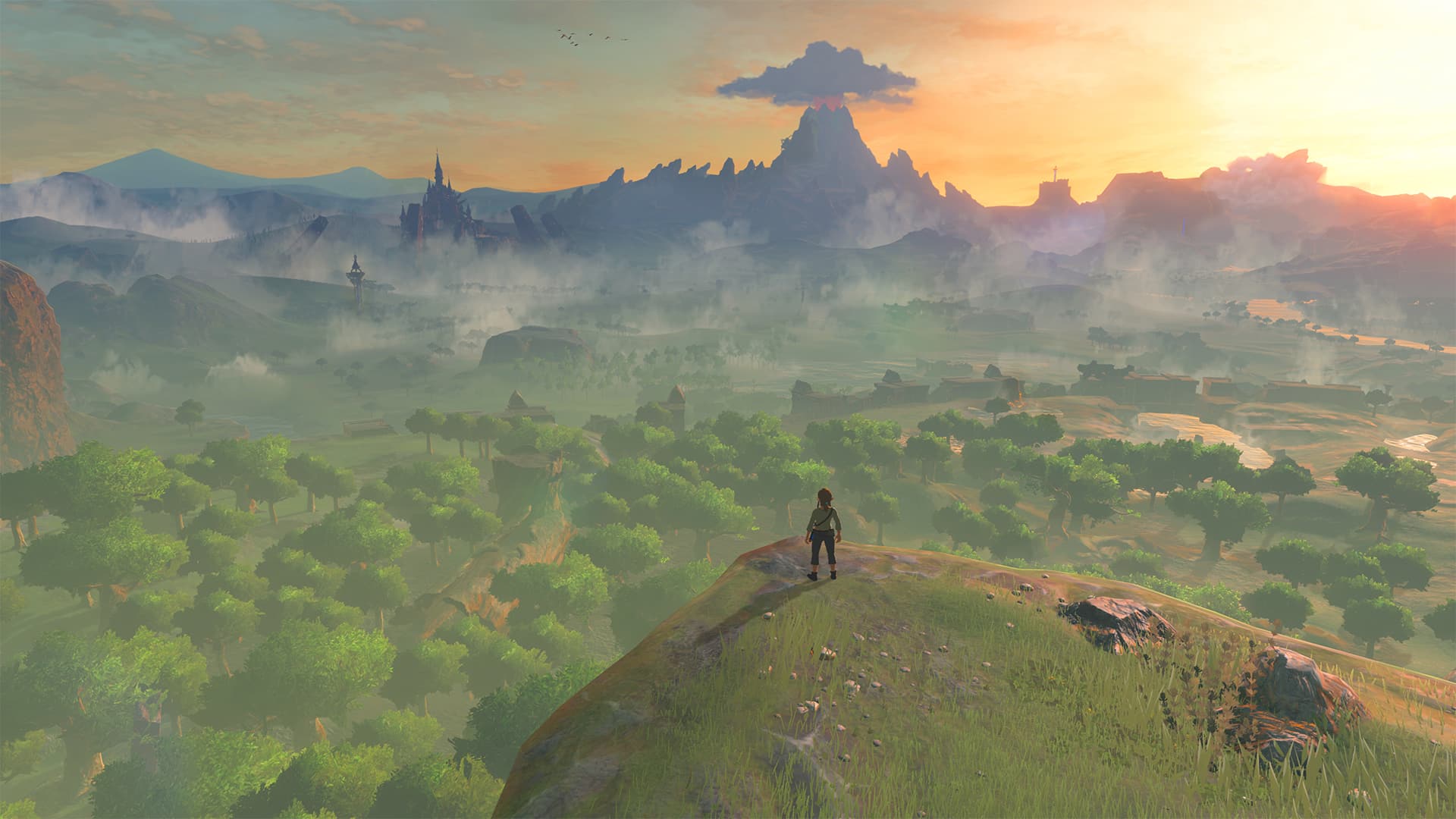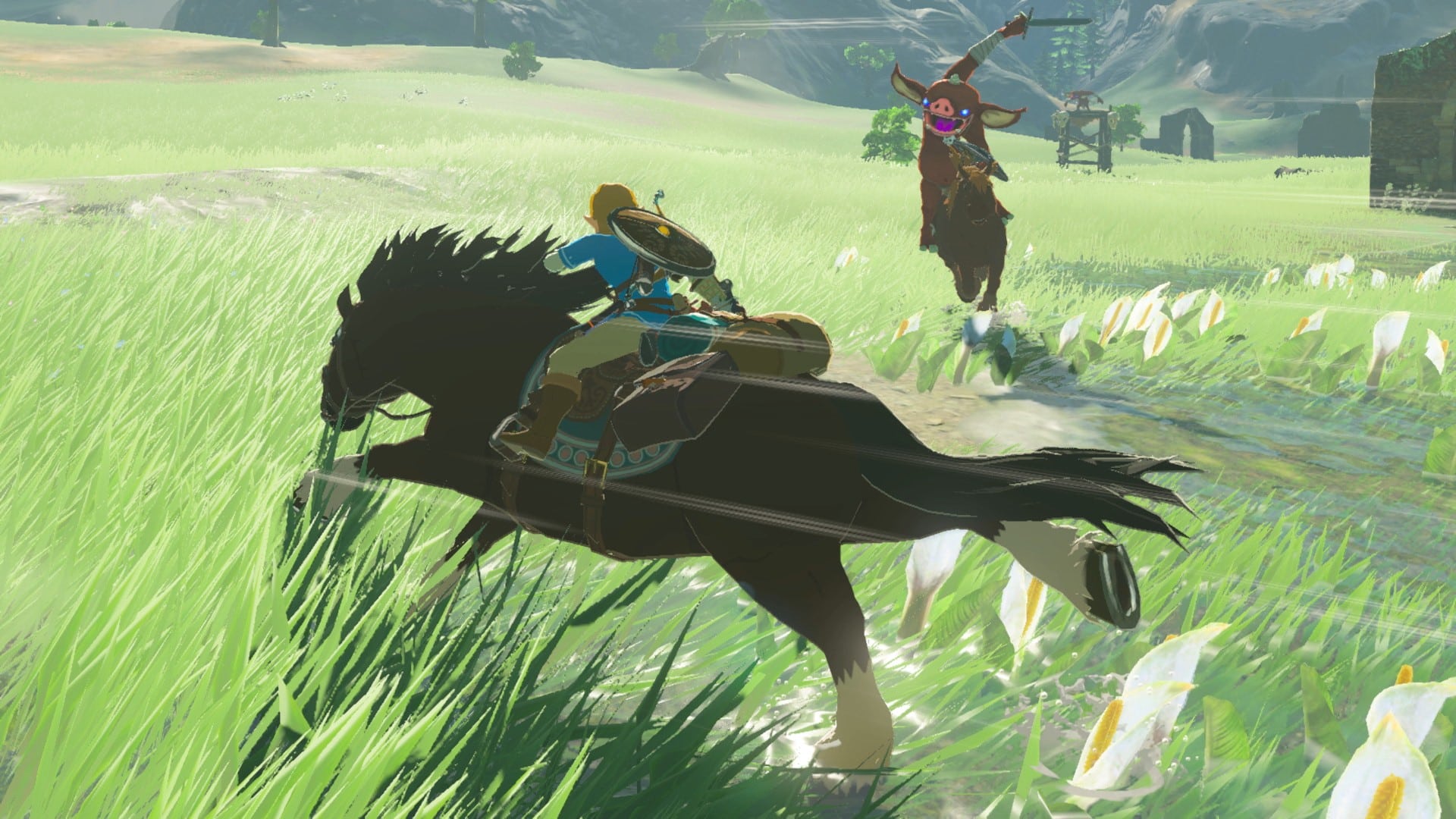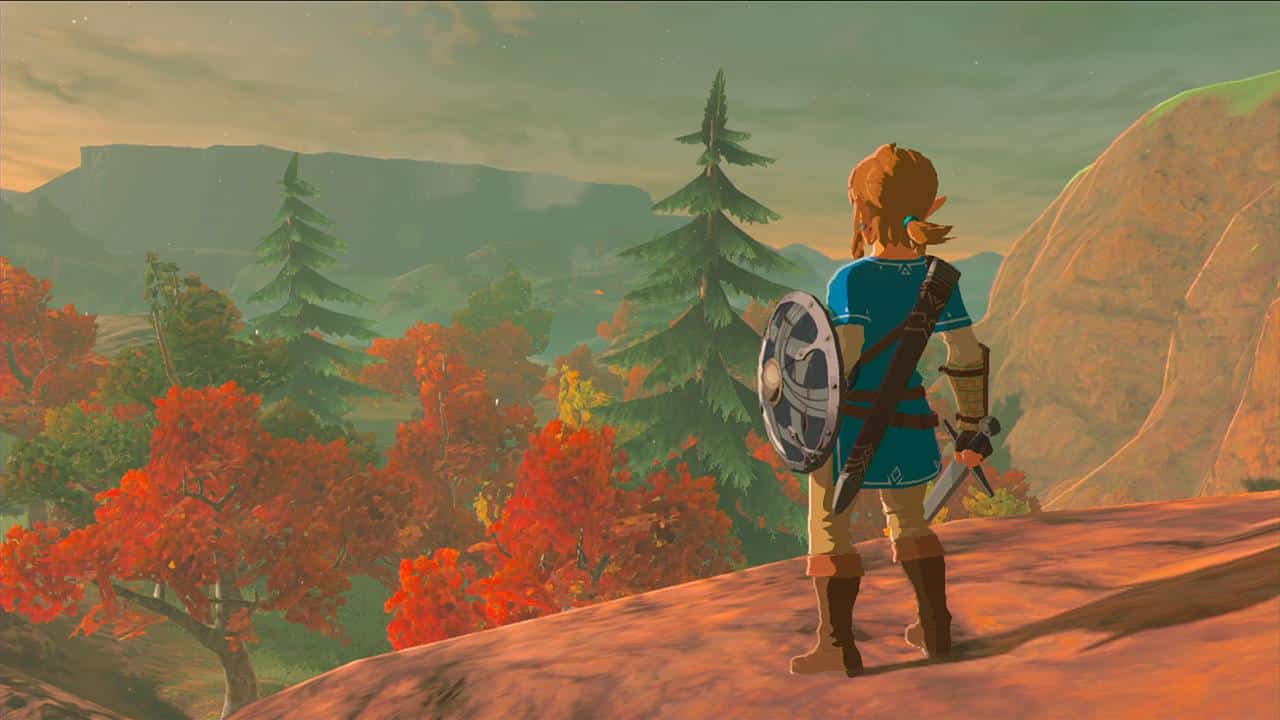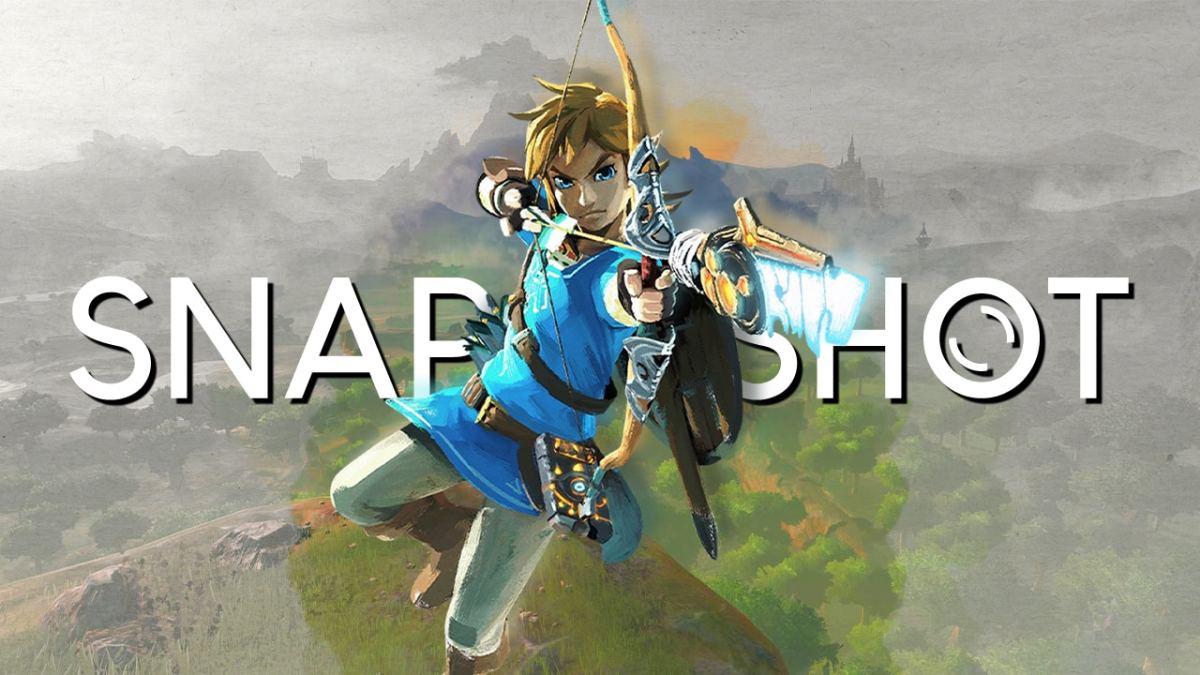Every week, I’m going to choose a single moment from a single video game and dive head first into it, looking at why the moment stands out in terms of gameplay, aesthetics, and consequences. How the moment is framed in the context of the entire game, an entire game series, or its place in gaming history as a whole. So join me as I take a look at this week’s Snapshot, looking at leaving the Great Plateau in The Legend of Zelda: Breath of the Wild.
The Legend of Zelda: Breath of the Wild is filled to the brim with amazing moments that my mind wanders to on a fairly regular basis. Some of them are scripted, like the powerful Memories that show Link’s last stand against the Guardians from 100 years in the past. Some are dynamic, like sneaking up to an enemy encampment, accidentally starting a brush fire, realizing that said fire causes an up-draft that can launch you high into the air, and then using my vantage point to snipe out Bokoblins. And then some moments are a nice mixture of the two. The moment I’m going to focus on today falls in that sweet spot.
It’s been said a thousand times before that the core premise of the original Legend of Zelda for the NES was inspired by the feeling Shigeru Miyamoto had growing up while exploring the hillside and caves surrounding his childhood home. It was that perfectly balanced cocktail of danger and potential that only seems to exist when you’re young, and the possibilities of life are endless. That feeling of wonder over what might lie over the next hill. But it wasn’t until 30 years later, at the moment players left Breath of the Wild‘s opening area, that Nintendo truly achieved this pure, unadulterated sense of adventure.

The game opens in an area known as the Great Plateau. It’s a relatively large expanse filled with ancient ruins, deep lakes, and snowy mountains. You spend the opening hour or two exploring the area, learning the basic rules of this new dynamic world, and solving a handful of shrines that each give you one of BotW’s core abilities. Upon completion, you’re granted access to a paraglider that allows you to safely float off of the plateau and into the greater kingdom of Hyrule below.
And so, you float. Perhaps to the left, in the direction of some crumbled ruins. Or maybe to the right, towards a bridge that stretches over a winding river. Or, if you’re feeling particularly brave, straight ahead in the direction of a massive castle enveloped by a swirling maelstrom of evil. Regardless of your choice, you can only glide so far before your feet eventually reunite with the ground, and it’s here that Breath of the Wild truly delivers on its promise.
You have all of the tools you need to begin exploring this vast and open depiction of Hyrule. You can quite literally go in any direction, and you’ll find adventure just waiting to be experienced. There are no locked doors, artificial gates, or story constructs that will turn you away. If you come across a wall, you can either find a way around it or just climb over it.
One of the things that sticks with me most about this moment is that its presentation completely subverts expectations. In any other game, leaving the Great Plateau would’ve been handled with a cutscene lifted by a swell of music. Effective, sure, but it would’ve taken control out of your hands and presented the moment in a cinematic manner. But the fact that Breath of the Wild gives you complete control of this descent into greater Hyrule only strengthens that this is your journey to author as you see fit.

Also, without the fanfare, there’s a melancholic silence and calm to landing on the ground that only heightens BotW’s theme of loneliness. Link has been a hero ripped out of time for the past century, but the world around him continued to move on. The beautiful and vibrant kingdom he once served as protector of is now in ash, with only a few pockets of civilization left scattered among the ruins. This moment, and the game as a whole, reminds you that you failed. That the bad guys won, and there was nothing Link could do to stop it. The only thing you can do is press on into the wild blue yonder and hope to right your wrong.
The freedom that accompanied leaving the Great Plateau also represented a turning point for the Legend of Zelda series as a whole. After the wonderfully creative Wind Waker in 2003, the series played it safe with Twilight Princess, which felt very much like Ocarina of Time 2.0. This was followed by Skyward Sword for the Wii, a game with some great ideas and a solid story that were overshadowed by finicky motion controls and a lot of bloat. So for Nintendo to deliver a game in Breath of the Wild that was simultaneously revolutionary while still adhering to the core tenets of the series was nothing short of remarkable. It reestablished the Zelda franchise as one that leads rather than follows. It really does feel like when we look back on the history of open-world video games, there will be a line of demarcation between games that came out before Breath of the Wild and ones that came out after.
Finally, aside from being a momentous occasion for both the individual game as well as the entire series, this promise also acted as a statement from Nintendo itself. After the misfire of the Wii U, Nintendo was in dire need of a win. The Switch’s full reveal a few months prior to launch was met with some understandable skepticism. It seemed like a truer expression of what the Wii U was going for, but was that ultimately a good thing? If the Switch ended up stumbling out of the gate, who knows what the future might’ve held for Nintendo?

But three years later, we know how that all turned out. Breath of the Wild would go on to be argued among the Mount Rushmore of video game console launch titles alongside classics like Tetris, Super Mario 64, and Halo: Combat Evolved. This momentum right from the start helped propel Nintendo’s hybrid console to massive success both commercially and critically. The Switch is truly a culmination of what Nintendo has been good for since the ‘80s — a combination of warm familiarity and endless potential.
I’ve replayed The Legend of Zelda: Breath of the Wild a half dozen times in the past few years, and I can’t help but marvel at how powerful leaving the Great Plateau is each and every time. It’s a high water mark for Nintendo and the medium as a whole. It’s that sensation of adventure distilled into its purest form. In short, it’s a moment that turns back time to when you were a child in a world full of possibility, wondering what lies just over that next hill.






Published: Feb 11, 2020 04:19 pm